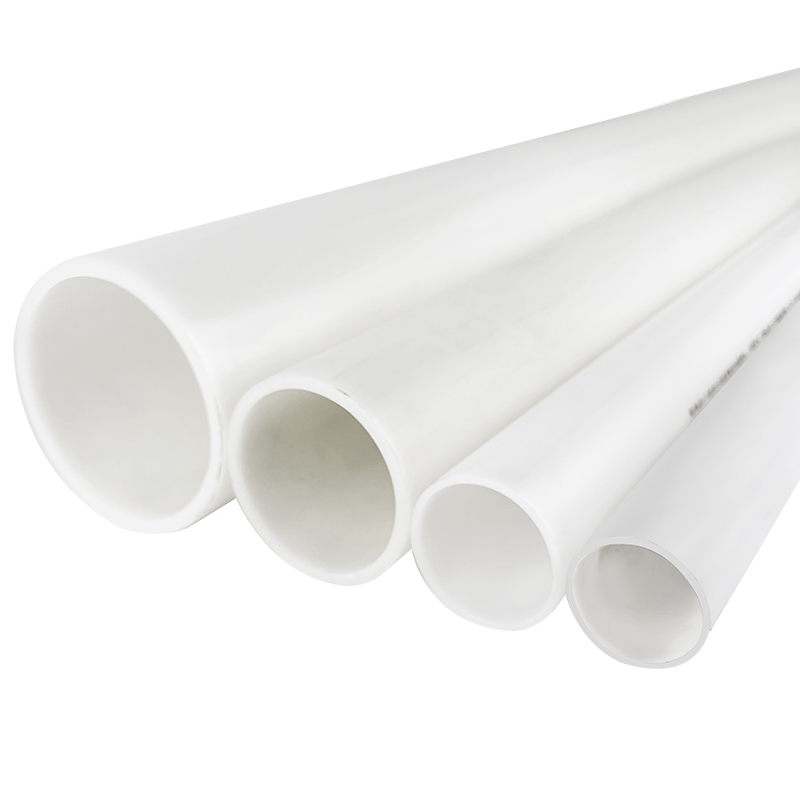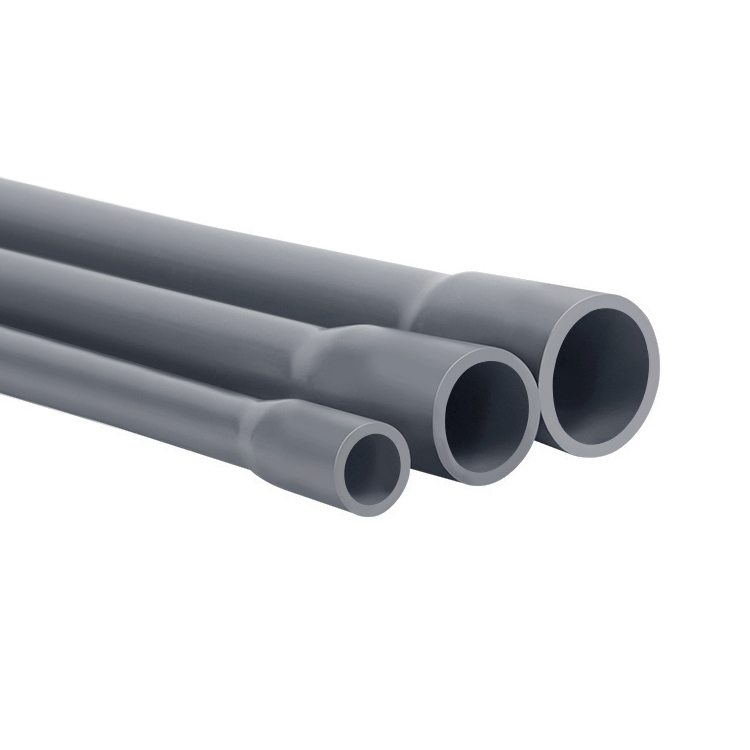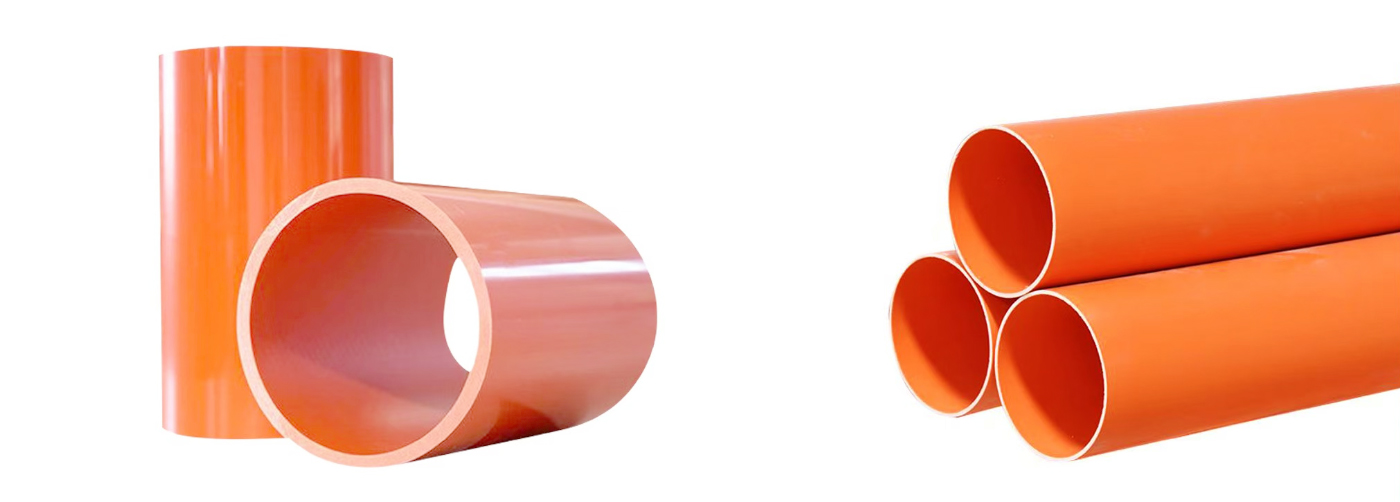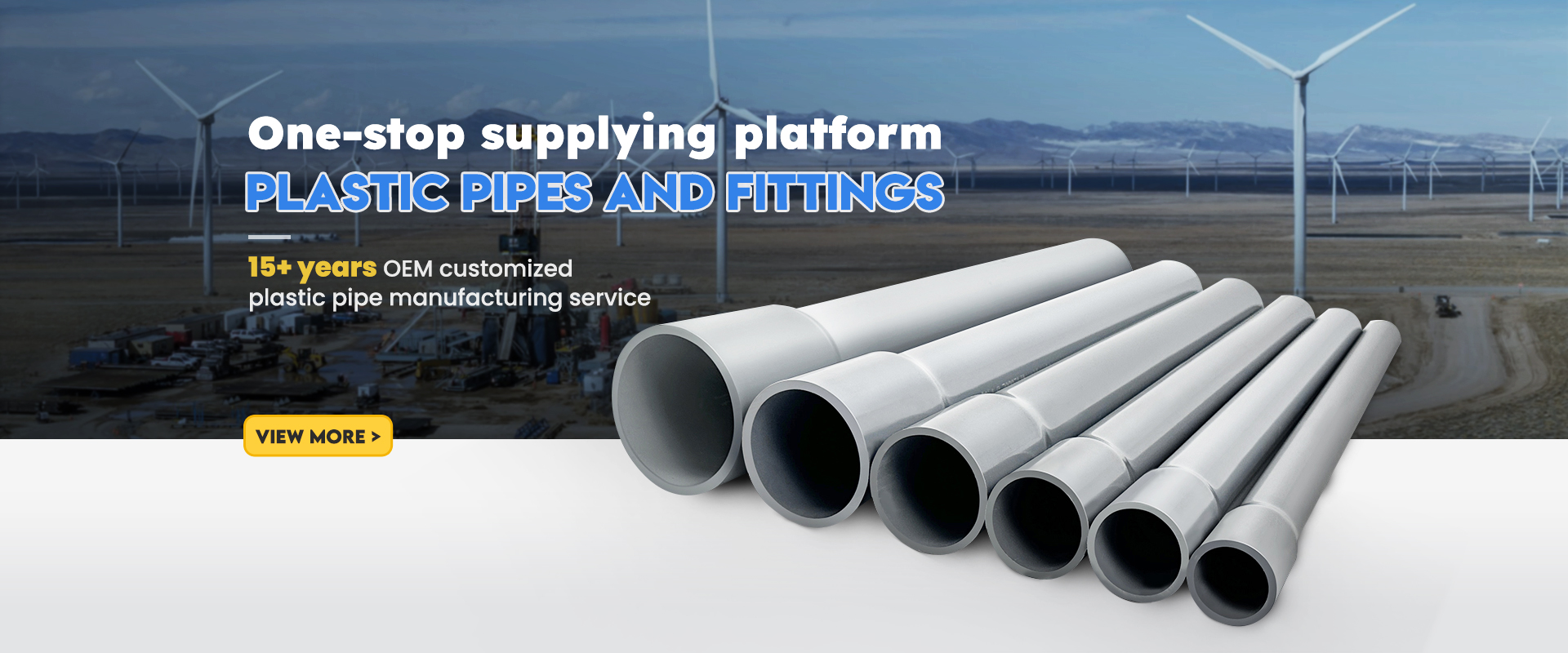HDPE vs. PVC Electrical Conduit: Which Is the Better Choice?
Categories:PVC Pipe and Fitting Author: author
When it comes to electrical installations, choosing the right type of conduit is one of the most important decisions. Electrical conduits not only protect wires and cables but also influence durability, safety, and long-term maintenance costs. Among the many options available, HDPE electrical conduit and PVC electrical conduit are two of the most widely used choices in commercial, residential, and industrial projects.
Here we'll compare these two materials, examining their characteristics, advantages, limitations, and application scenarios.
What Is HDPE Electrical Conduit?
HDPE (High-Density Polyethylene) electrical conduit is made from a strong and flexible thermoplastic. It has a smooth inner wall, which makes it easy to pull cables through long runs. HDPE conduit is known for its excellent resistance to impact, corrosion, and chemicals, which is why it's widely used in underground and outdoor installations.
Key Characteristics of HDPE Electrical Conduit
Flexibility: HDPE conduits are more flexible than rigid conduits, allowing installation in curved or uneven terrains without requiring many fittings.
Durability: Resistant to corrosion, moisture, and most chemicals, making it a great choice for harsh environments.
Lightweight: Easier to transport and install compared to some rigid alternatives.
Longevity: HDPE conduits are designed to last for decades, even in challenging outdoor conditions.
Jointing Options: Available in long continuous reels and can be joined by heat fusion or mechanical fittings, reducing the risk of leaks or weak points.
Because of these properties, HDPE conduit is commonly used in telecommunications, fiber optic protection, power distribution, wind and solar energy projects, and highway lighting.
What Is PVC Electrical Conduit?
PVC (Polyvinyl Chloride) electrical conduit is another widely used material in electrical installations. Unlike HDPE, PVC conduits are generally more rigid and come in different variations.
The two most common are:
PVC-U (Unplasticized PVC) Electrical Conduit: It is durable, fire-resistant, and moisture-proof, making it the most commonly used PVC conduit. Ideal for general electrical installations in buildings, both residential and commercial.
PVC-C (Chlorinated PVC) Electrical Conduit: PVC-C conduit is particularly useful in industrial settings or areas with higher operating temperatures.
SCH 40 80 Electrical UPVC Rigid Conduit
Key Characteristics of PVC Electrical Conduit
Fire Resistance: PVC has self-extinguishing properties, which make it safer for indoor applications.
Cost-Effective: PVC conduits are generally more affordable than HDPE in many markets.
Easy to Work With: Can be cut, bent, and joined with solvent cement, which simplifies installation.
Multiple Variants: The availability of both PVC-U and PVC-C allows contractors to choose the right product for the environment.
Smooth Inner Surface: Reduces friction during cable pulling.
PVC electrical conduits are commonly found in indoor wiring, concealed wiring in walls, surface-mounted systems, and industrial plants.
Comparing HDPE vs PVC Electrical Conduit
Choosing between HDPE and PVC isn't about one being better than the other—it's about which one suits your project conditions best.
1. Flexibility and Installation
HDPE: Highly flexible, making it perfect for underground boring, directional drilling, and curved pathways. Long reels reduce the number of joints needed.
PVC: More rigid. Requires fittings for bends and turns, which can add to installation time in complex layouts.
2. Strength and Durability
HDPE: Excellent resistance to impact, pressure, and environmental stress. Works well in areas prone to ground movement or heavy loads.
PVC: Rigid and strong under normal conditions, but more likely to crack under extreme pressure or if exposed to heavy impact.
3. Heat and Fire Resistance
HDPE: Performs well in cold and outdoor environments but has limitations in high-heat conditions.
PVC-U: Resistant to fire and suitable for most indoor uses.
PVC-C: Superior heat resistance compared to PVC-U and HDPE, making it more suitable for industrial applications.
4. Chemical Resistance
HDPE: Resists most chemicals, oils, and solvents, making it ideal for industrial and outdoor settings.
PVC-U & PVC-C: Also resistant to many chemicals, but PVC-C performs better under aggressive chemical exposure.
5. Cost
HDPE: Typically more expensive upfront than PVC, but can be cost-effective in long underground runs where fewer joints are needed.
PVC: Usually more budget-friendly, widely available, and preferred for indoor and standard construction projects.
6. Applications
HDPE: Underground cabling, renewable energy projects, telecom networks, and environments requiring flexibility.
PVC-U: General building wiring, residential and commercial concealed wiring, fire-safe installations.
PVC-C: Industrial plants, high-temperature zones, and chemical processing facilities.
Comparison Table: HDPE vs PVC (PVC-U & PVC-C) Electrical Conduit
|
Feature / Property |
HDPE Electrical Conduit |
PVC-U Electrical Conduit |
PVC-C Electrical Conduit |
|
Flexibility |
Very flexible, ideal for curves and underground boring |
Rigid, requires fittings for bends |
Rigid, similar to PVC-U |
|
Durability |
Excellent impact and corrosion resistance |
Strong, but can crack under heavy impact |
Stronger chemical and heat resistance than PVC-U |
|
Heat Resistance |
Limited at high temperatures |
Good fire resistance, self-extinguishing |
Superior heat resistance, suitable for high-temp environments |
|
Chemical Resistance |
Excellent, resists most chemicals and solvents |
Good, suitable for general applications |
Excellent, better for harsh chemical exposure |
|
Cost |
Higher upfront cost, cost-effective for long underground runs |
More affordable, widely available |
Slightly higher cost than PVC-U, but better performance |
|
Best Applications |
Underground power, telecom, renewable energy |
Residential and commercial wiring, concealed/surface wiring |
Industrial plants, high-temperature or chemical-heavy areas |
Applications of HDPE and PVC Electrical Conduit
When to Choose HDPE Conduit?
● Large-scale underground power distribution networks.
● Renewable energy projects like solar farms or wind turbines.
● Fiber optic and telecommunications projects where long continuous runs are necessary.
● Areas with unstable ground conditions.
When to Choose PVC Conduit?
● Indoor electrical wiring for homes, offices, and commercial buildings.
● Surface or concealed wiring in construction projects.
● Fire-prone areas where flame resistance is a key safety factor.
● Industrial facilities needing PVC-C for heat and chemical resistance.
Why Work with ULP for HDPE and PVC Electrical Conduits?
If you're searching for a reliable supplier of electrical conduits, ULP offers a complete range of solutions, including:
HDPE Electrical Conduit – available in multiple sizes and thicknesses, suitable for underground and outdoor applications.
PVC-U Electrical Conduit and Fitting – perfect for everyday building wiring with durability and cost-effectiveness.
PVC-C Electrical Conduit and Fitting – designed for high-performance environments requiring extra heat and chemical resistance.
What Makes ULP Stand Out?
OEM/ODM Services: ULP provides flexible customization options, including conduit sizes, colors, and packaging.
Competitive Pricing: High-quality products at prices designed to give contractors and distributors a strong market advantage.
Reliable Quality: Every conduit meets international standards for safety and performance.
Custom Solutions: Whether you need conduits for residential projects, commercial developments, or industrial plants, ULP can tailor solutions to your requirements.
Professional Support: ULP sales team will provide expert advice and help you choose the right conduit system and fittings.
High-quality Plastic Conduit and Accessory Manufacturer
Conclusion: ULP Makes the Choice Easier
When comparing HDPE vs PVC electrical conduit, there is no single better option. Each material has its strengths, and the right choice depends on the specific needs of your project.
● If you need flexibility, durability, and chemical resistance for underground or outdoor projects, HDPE conduit may be ideal.
● If you need affordable, fire-resistant, and versatile solutions for building wiring, PVC-U or PVC-C conduits are strong contenders.
What matters most is choosing a conduit that matches your installation environment, safety requirements, and budget.
With ULP full range of HDPE and PVC electrical conduits, plus customization options, competitive pricing, and guaranteed quality, you can be confident you're getting the best solution. Click now to contact ULP—our professional sales team is ready to provide tailored conduit and fitting solutions for your projects.





